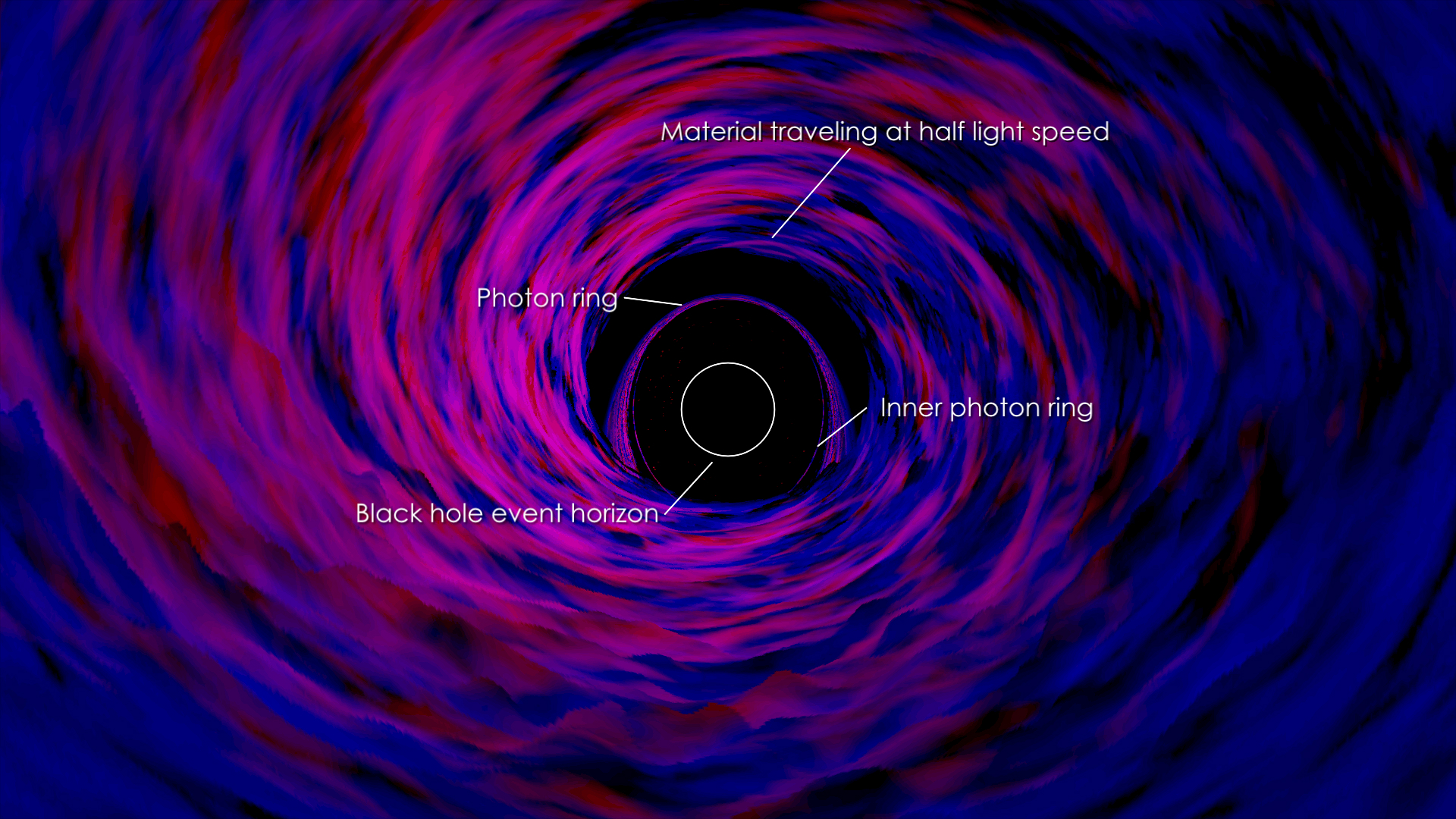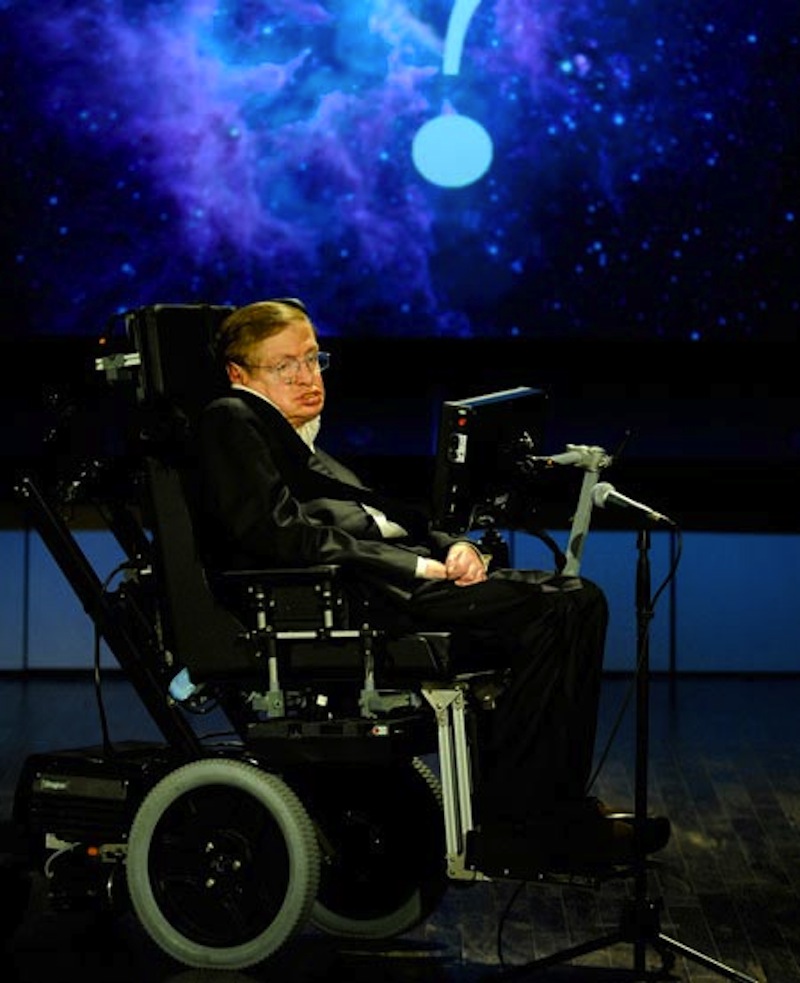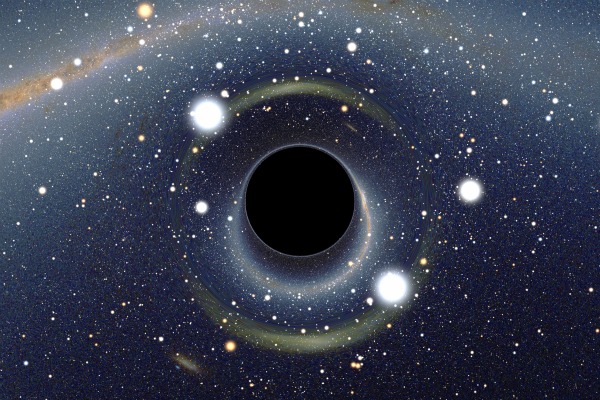Stephen Hawking: There Are No Black Holes

On reading a new paper by Stephen Hawking that appeared online this week, you would have been forgiven in thinking the world-renowned British physicist was spoofing us. Hawking's unpublished work — titled "Information Preservation and Weather Forecasting for Black Holes" and uploaded to the arXiv preprint service — declares that "there are no black holes."
ANALYSIS: Hawking: Great Scientist, Bad Gambler
Keep in mind that Hawking's bedrock theory of evaporating black holes revolutionized our understanding that the gravitational behemoths are not immortal; through a quantum quirk they leak particles (and therefore mass) via "Hawking radiation" over time. What's more, astronomers are finding new and exciting ways to detect black holes — they are even working on an interferometer network that may, soon, be able to directly image a black hole's event horizon!
Has Hawking changed his mind? Are black holes merely a figment of our collective imaginations? Are all those crank theories about "alternative" theories of the Cosmos true?!
Fortunately not.
Stephen Hawking hasn't changed his mind about the whole black hole thing, but he has thrown a complex physics paradox into the limelight, one that has been gnawing at the heart of theoretical physics for the last 18 months.
Black Hole Fight Club
Breaking space news, the latest updates on rocket launches, skywatching events and more!
It all boils down to a conflict between two fundamental ideas in physics that control the very fabric of our Universe; the clash of Einstein's general relativity and quantum dynamics. And it just so happens that the extreme environment in and around a black hole makes for the perfect "fight club" for the two theories to duke it out. But what's the first rule of the black hole fight club? Don't talk about the firewall, lest you get sucked into an argument with a theoretical physicist.
VIDEO: Hawking: We Need To Leave Earth
At a California Institute of Technology (Caltech) lecture in April 2013, Hawking and other prominent theoretical physicists had an opportunity to describe the problem at hand. Caltech's Kip Thorne, for example, described the firewall paradox as "a burning issue in theoretical physics."
The very basis of this burning issue is the thing that makes black holes black — the event horizon. In its most basic form, the event horizon of a black hole is the point at which even light cannot escape the gravitational clutches of the massive black hole singularity. If light cannot escape, it stands to reason that it will appear as a black sphere in space. It is a cosmic one-way street: everything goes in, nothing comes out.
An Unlucky Astronaut
In the general relativity universe, for an astronaut who had the misfortune to fall toward a black hole, he or she wouldn't notice anything untoward as they passed across the event horizon. It would be a fairly peaceful event, no drama. "Although later on you're doomed and you’ll encounter very strong gravitational forces that will pull you apart," noted Caltech physicist John Preskill at the 2013 Caltech event. [The Strangest Black Holes in the Universe]
However, the quantum universe contradicts this "no drama" event horizon idea as predicted by general relativity.
In 2012, a group of physicists headed by Joseph Polchinski of the University of California in Santa Barbara revealed their finding that if black holes truly do not destroy information — a standpoint that Hawking himself reluctantly advocates — and that information can escape from the black hole through Hawking radiation, there must be a raging inferno just inside the event horizon they dub the "firewall."
In this case, rather than falling into a "no drama" event horizon, our unlucky astronaut gets burnt to a crisp before getting ripped apart by tidal shear. This is the very antithesis of "no drama" and, therefore, a paradox.
ANALYSIS: Death By Black Hole Firewall Incineration It Shall Be
This apparent conflict between what general relativity predicts and what quantum dynamics predicts — two very established fields in physics — is precisely what theoretical physicists are trying to understand. This appears to be yet another situation where gravity and quantum dynamics don’t play nice, the solution of which may transform the way we view the Universe.
So, when Hawking, one of the key players in the great firewall debate, writes a short paper on the topic (regardless of whether or not it has been published) the world takes note.
Hawking’s solution to the paradox removes the black hole’s event horizon, thereby removing the paradox; no event horizon, no firewall. But we're told all black holes have event horizons — the line you cannot cross or be forever lost inside the black hole — what gives? [No Escape: How Black Holes Work (Infographic)]
Hawking thinks that the idea behind the event horizon needs to be reworked. Rather than the event horizon being a definite line beyond which even light cannot escape, Hawking invokes an "apparent horizon" that changes shape according to quantum fluctuations inside the black hole — it's almost like a "grey area" for extreme physics. An apparent horizon wouldn't violate either general relativity or quantum dynamics if the region just beyond the apparent horizon is a tangled, chaotic mess of information.
NEWS: Spooky Connection: Wormholes and the Quantum World
"Thus, like weather forecasting on Earth, information will effectively be lost, although there would be no loss of unitarity," writes Hawking. This basically means that although the information can escape from the black hole, its chaotic nature ensures it cannot be interpreted, sidestepping the firewall paradox all together.
Needless to say, this paper has done little to convince Polchinski. "It almost sounds like (Hawking) is replacing the firewall with a chaos-wall, which could be the same thing," he told New Scientist.
Much of the theoretical debate is hard to fathom and the result of calculations of physical events that we cannot possibly experience in our day to day lives. But don't mistake this particular debate as solely a high-brow argument in the theoretical physics community. Its foundations are rooted in the growing discomfort we are feeling with the mismatch of general relativity and quantum dynamics (particularly what role gravity plays in the quantum world), a problem that cannot be solved with our current understanding of the universe.
It is, after all, these science problems that we build multi-billion dollar particle accelerators for.
Source: Nature News
This article was provided by Discovery News.
Ian O'Neill is a media relations specialist at NASA's Jet Propulsion Laboratory (JPL) in Southern California. Prior to joining JPL, he served as editor for the Astronomical Society of the Pacific‘s Mercury magazine and Mercury Online and contributed articles to a number of other publications, including Space.com, Space.com, Live Science, HISTORY.com, Scientific American. Ian holds a Ph.D in solar physics and a master's degree in planetary and space physics.


![Black holes are strange regions where gravity is strong enough to bend light, warp space and distort time. [See how black holes work in this SPACE.com infographic.]](https://cdn.mos.cms.futurecdn.net/8GbuLi8DVtx8HoZeSyndT7.jpg)
